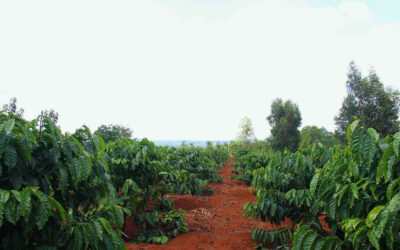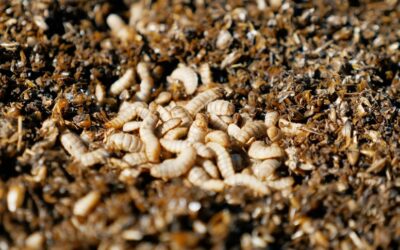In a world inundated with sustainability claims, discerning genuine eco-friendly practices from greenwashing can be challenging. Yet, in the midst of this, Black Soldier Fly Larvae (BSFL) farming emerges not just as a buzzword but as a beacon of true sustainability and profitability. Let’s unpack the environmental benefits of BSFL and illustrate how it contributes to a circular system, even to those new to the concept of organic waste management.
Understanding BSFL Farming Black Soldier Flies are not your typical household pests. These insects are powerhouses when it comes to waste management. Their larvae can consume vast amounts of organic waste, from food scraps to agricultural by-products, which would otherwise end up in landfills emitting methane, a potent greenhouse gas. What’s remarkable is that BSFL convert this waste into two valuable products: protein-rich feed for animals and high-quality compost for plants.
BSFL: A Pillar of Circular Economy The circular economy is an alternative to the traditional linear economy (make, use, dispose) and aims to keep resources in use for as long as possible. BSFL farming embodies this principle. Here’s how:
- Waste Reduction: BSFL significantly reduce the volume of organic waste by upcycling it into useful by-products.
- Nutrient Recovery: The larvae’s waste, known as ‘frass,’ is a nutrient-rich, natural fertilizer that helps close the nutrient loop in food production by returning vital minerals to the soil.
- Protein Production: BSFL provide a sustainable alternative to traditional animal feeds like fishmeal and soy, which are often associated with environmental degradation.
Sustainability that Speaks Volumes Critics might wonder if BSFL farming is truly sustainable or just another ‘green’ fad. Here are the facts:
- Resource Efficiency: BSFL require significantly less land and water than traditional livestock and can be farmed vertically, making them an ideal choice for urban settings.
- Lower Greenhouse Gases: By diverting waste from landfills, BSFL farming reduces methane emissions, a critical factor in combating climate change.
- Resilience: BSFL thrive on a variety of organic waste streams, making them less susceptible to market fluctuations that affect feedstock prices.
Economic Resilience and Profitability Far from being a luxury for the affluent, BSFL farming is a robust business model that thrives across economic cycles. Here’s why:
- Demand for Feed: The global demand for sustainable animal feed is rising, creating a market for BSFL protein that is competitive and resilient.
- Cost-Effectiveness: BSFL convert waste into high-value products, reducing input costs and creating more profit margins compared to conventional waste management and feed production.
- Scalability: From smallholder farmers to large corporations, BSFL farming is scalable. Small setups can service local communities, while larger operations can supply feed at an industrial scale.
BSFL Farming: Sustainability in Action The real-world impact of BSFL farming is tangible. It’s not just a concept but a practice being implemented globally, with success stories from diverse climates and economies. Companies in Europe and Canada, and increasingly in warmer regions, are demonstrating that BSFL farming is both environmentally and economically viable.
The Verdict on BSFL Farming For the skeptics, the merits of BSFL farming as a sustainable business model are clear and supported by data and practice. It’s not merely surviving on a sustainability premium; it’s thriving on the real-world benefits it delivers. BSFL farming stands as a testament to what sustainable business practices can achieve: real profit, real impact, and a real contribution to a more sustainable future.
In conclusion, BSFL farming transcends the label of an eco-trend. It’s a solid, evidence-based practice that enhances our waste management capabilities, provides a sustainable source of animal feed, and supports global food security. It’s a business model that proves environmental responsibility and profitability can go hand in hand, offering a blueprint for sustainable practices that other industries might well emulate.






0 Comments